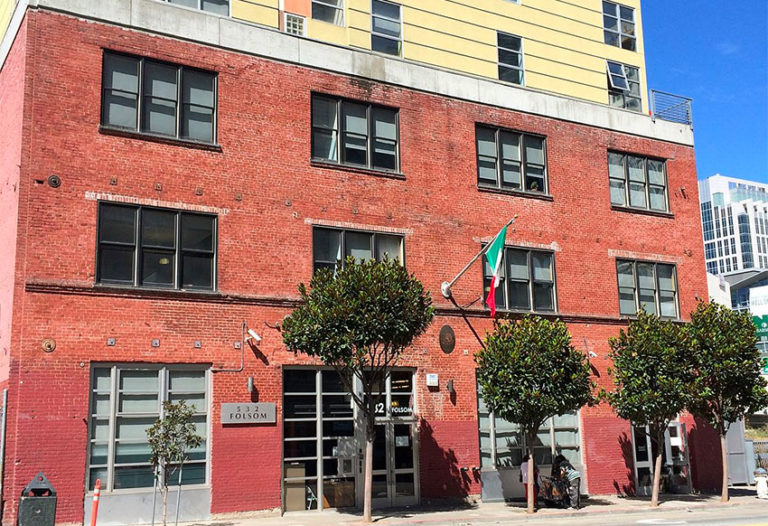Growing hostility against Mexicans in US, atmosphere of intolerance: Foreign Affairs
Along with Ethiopia, Haiti, India and others, the SRE classifies the US as a “hard life” country for Mexican citizens
by Mexico News Daily
There is a growing climate of hostility against Mexicans and other minority groups in the United States, the Secretariat of Foreign Affairs (SRE) warns in a new security document.
Mexican consulates in the U.S. have detected “a sharp increase in recent months in the hostile environment against minorities,” the SRE said in a document obtained by the newspaper El Universal that outlines plans to purchase new security equipment for diplomatic missions.
Published this month, the document says that “scheduled attacks, marches that promote xenophobia and fierce debates on United States television have undermined the cosmopolitan environment in that country.”
The publication of the document comes in the aftermath of the August 3 mass shooting in El Paso, Texas, in which a lone gunman killed 22 people including eight Mexican citizens.
According to an affidavit filed by the El Paso Police Department, the 21-year-old suspect told officers that he targeted Mexicans, while in a manifesto published online the alleged shooter said he was carrying out the attack in “response to the Hispanic invasion of Texas.”
The massacre, which the New York Times said was “the deadliest attack to target Latinos in modern American history,” has shaken Latino communities across the United States.
Critics of Donald Trump, including candidates vying for the presidential nomination for the Democratic Party, have accused the United States president of creating racial division in the U.S. and emboldening those who have carried out racially-motivated attacks.
In the lead-up to the 2016 presidential election, Trump infamously labelled some Mexican immigrants as drug dealers, criminals and “rapists.”
More recently, he described the arrival of large migrant caravans at the United States southern border as an “invasion.”
In light of the identified growth in hostility towards minorities, the SRE said that the safety of its diplomatic personnel in the United States could be at risk, especially considering that the security systems in place at some Mexican missions are obsolete.
Along with Ethiopia, Haiti, India, Lebanon, Nicaragua and Palestine, the SRE classifies the United States as a “hard life” country for Mexican citizens including diplomatic staff posted to the country.
One of the reasons why the foreign ministry makes such a classification is because it deems that there is an atmosphere of “intolerance and manifest discrimination” in the country to which it applies.
Amid an environment in which Mexicans are considered more vulnerable to attacks, the SRE said that the Mexican consulate in San Francisco needs a new video surveillance system.
The cameras it has are obsolete, the SRE said, a situation that leaves the consulate unprotected in an area where “local authorities have reported burglaries, assaults and vandalism.”
The SRE said the consulate in Chicago requires a new safe-deposit box to store the large amounts of cash it receives on a daily basis, while the embassy in Washington D.C. also requires upgrades to its video security system.
The safety of diplomatic personnel as well as Mexican citizens and people of other nationalities who attend Mexican consulates and the countries embassies “must be protected at all costs,” the SRE said.
Source: El Universal (sp).
Migrants’ protest in Chiapas triggers confrontations with security forces
Violent clashes began Tuesday at a migration station in Tapachula
Migrants from Africa and Haiti clashed with security forces in Tapachula, Chiapas, this week while protesting to demand transit visas that would allow them to travel to the northern border.
Hundreds of migrants began a protest on Monday outside the Siglo XXI migration station, where they blocked the entry and exit of buses transporting Central Americans on their way to be deported to their countries of origin.
The newspaper El Universal reported that migrants from Ethiopia, Mali, Cameroon, Somalia, Congo, Mauritania, Guinea and Haiti were among those protesting against the government’s decision to cease granting permits. They would allow them to travel to the border with the United States, where they intend to seek asylum.
Permits currently being issued only allow the migrants to stay in Chiapas, where they say there are no employment opportunities.
The newspaper El Financiero said that under current laws, migrants are entitled to receive a 20-day transit visa to travel to the United States but some have been waiting in Tapachula for more than three months without even being able to apply for one.
On Tuesday night, Federal Police officers and members of the National Guard attempted to break up the protest but were met with resistance. Scuffles ensued and four migrants were arrested and taken inside the detention center.
On Wednesday, there was another attempt to break up the protests during which a pregnant African woman fell to the ground and went into convulsions, reportedly due to sunstroke, fatigue and not having eaten. She was assisted by medical personnel from the migration station but lost the baby later, according to the advocacy group Pueblo Sin Fronteras (People Without Borders).
Director Irineo Mújica Arzate claimed there have been acts of repression and violence against the migrants on the part of federal forces.
His organization said in a statement that security forces have turned Tapachula into a “prison city,” conducting raids to hunt down migrants, and committing acts of abuse.
During Wednesday’s eviction attempt, women and children lay on the ground outside the migration station to prevent two police cars and another vehicle from leaving.
When police tried to forcibly remove them, the women fought back and accused the officers of committing acts of violence.
The government agreed in June to step up enforcement against undocumented migrants and deployed federal security forces to both the southern and northern borders.



